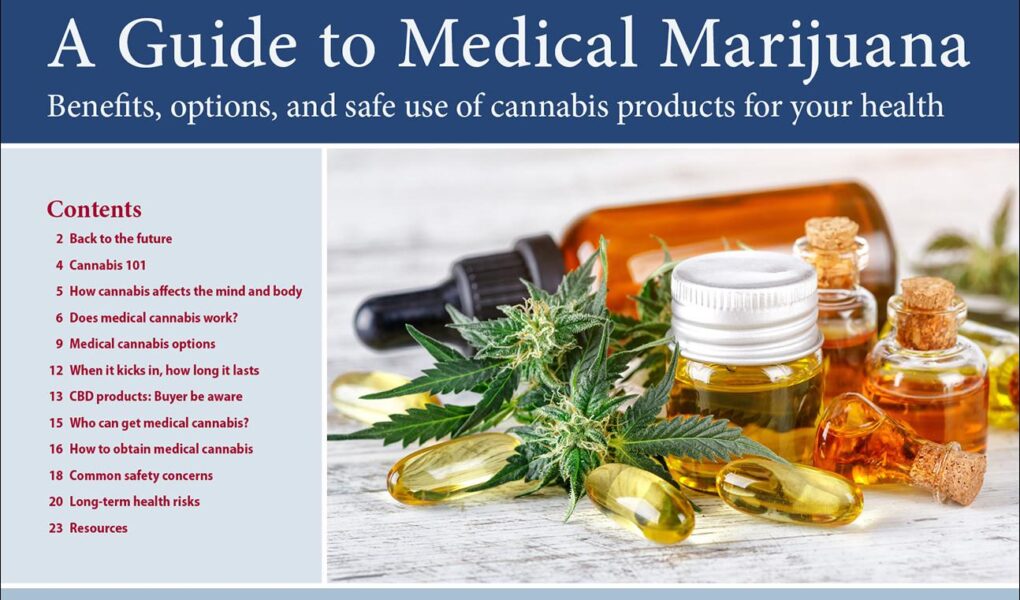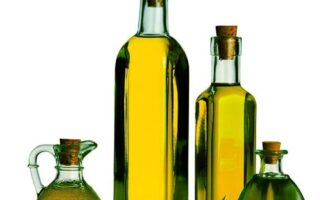In a world where wellness trends ebb and flow like the tides, the conversation around cannabis, particularly its most well-known compound—tetrahydrocannabinol, or THC—continues to gain momentum. Once relegated to the shadows of stoner culture and stigmatized by prohibition, THC has emerged as a topic of serious inquiry within both medical research and mainstream discourse. But what does it mean to say THC is “good for you”? This question invites a multifaceted exploration of the compound’s potential benefits, risks, and its complex role in human health. As we navigate through this evolving landscape, a careful examination of the evidence, personal experiences, and expert opinions will shed light on whether THC is a boon for well-being or merely a mirage in the desert of wellness trends. Join us as we delve into the science of THC, unravel the myths, and consider the factors that contribute to this intriguing and often misunderstood substance.
Table of Contents
- Exploring the Therapeutic Benefits of THC in Modern Medicine
- Understanding the Risks and Side Effects of THC Consumption
- Differentiating Between Medical and Recreational Use of THC
- Recommendations for Safe and Responsible THC Use
- Q&A
- Insights and Conclusions
Exploring the Therapeutic Benefits of THC in Modern Medicine
As modern medicine evolves, the interest in therapeutic compounds like THC continues to grow. This naturally occurring component of cannabis has shown promise in various medical applications, providing relief to patients suffering from a multitude of conditions. Research indicates that THC may be beneficial for:
- Chronic Pain Management: THC interacts with the body’s endocannabinoid system to alleviate pain, making it a potential alternative for those who seek relief without the side effects associated with traditional painkillers.
- Anxiety and Depression: Preliminary studies suggest that THC can help reduce anxiety and improve mood, helping individuals manage depressive symptoms and anxiety disorders more effectively.
- Appetite Stimulation: THC has been recognized for its ability to enhance appetite, which can be particularly crucial for patients undergoing treatments such as chemotherapy.
- Neurological Disorders: Research indicates that THC may have neuroprotective properties, offering potential benefits for conditions like multiple sclerosis and Parkinson’s disease.
The therapeutic landscape surrounding THC also emphasizes its role in personalized medicine. For patients who do not respond to conventional treatments, cannabis-based therapies that incorporate THC may provide a viable alternative. In many cases, the application of THC requires careful management to balance the benefits with potential psychoactive effects, making doctor supervision crucial. The following table highlights various disorders and the associated therapeutic benefits of THC:
| Condition | Therapeutic Benefit |
|---|---|
| Chronic Pain | Pain Relief |
| Anxiety Disorders | Reduced Anxiety |
| Cancer | Appetite Stimulation |
| Parkinson’s Disease | Neuroprotection |
Understanding the Risks and Side Effects of THC Consumption
While many individuals report positive experiences with THC, understanding the potential risks and side effects is essential for informed consumption. Some common side effects include:
- Increased Heart Rate: THC can elevate heart rate, which might be concerning for individuals with pre-existing heart conditions.
- Cognitive Impairment: Some users may experience mild memory impairment or altered judgment during consumption.
- Paranoia and Anxiety: In some cases, high doses can trigger feelings of anxiety or paranoid thinking.
- Dry Mouth and Red Eyes: These are common physical effects of THC, often referred to as “cottonmouth” and “bloodshot eyes.”
Long-term or excessive use of THC can lead to more significant concerns, particularly regarding mental health and dependency. It’s crucial to be aware of the following potential risks:
| Risk Factor | Description |
|---|---|
| Cognitive Decline | Chronic use may impair cognitive functions over time. |
| Dependency Issues | Extended usage can lead to a dependence on THC, requiring higher doses to achieve the same effects. |
| Psychiatric Disorders | In vulnerable individuals, THC may exacerbate or trigger underlying mental health issues. |
Differentiating Between Medical and Recreational Use of THC
When it comes to THC, understanding its dual paths in medical and recreational contexts is crucial. Medical use often focuses on therapeutic benefits, such as pain relief, reduction of nausea, and alleviation of anxiety. Patients may utilize cannabis to manage conditions like cancer, epilepsy, and multiple sclerosis. In this scenario, dosing is typically more precise, with an emphasis on strains and forms that maximize the beneficial effects while minimizing psychoactive experiences. The objective is to improve quality of life and functionality.
Conversely, recreational use revolves around enjoyment and social experiences. Individuals may consume THC for its euphoric effects, relaxation, or creative enhancement. The dosages are often less regulated, with more emphasis placed on strain potency and the desired high. This can lead to variable experiences and potential side effects, making it essential for users to understand their tolerance levels and prefered methods of consumption. Although both forms utilize THC, their purposes and experiences can vastly differ.
Recommendations for Safe and Responsible THC Use
When considering THC consumption, it is essential to prioritize safety and responsible practices. First and foremost, individuals should know their limits and understand how cannabis affects their bodies. Start with a low dose, especially if you are new to THC, and allow ample time for its effects to manifest before considering a higher dosage. It’s also important to view consumption in the context of your daily responsibilities and personal tolerance. Avoid driving or operating heavy machinery, and always select a comfortable and familiar environment for your usage.
Additionally, understanding the source and quality of THC products is crucial. Opt for products from reputable dispensaries that provide lab testing results, ensuring you are consuming safe and reliable substances. Other responsible practices include:
- Educate yourself on local laws and regulations surrounding THC use.
- Consider alternatives, such as CBD, if you are hesitant about THC’s psychoactive effects.
- Engage in open conversations with healthcare providers if you’re using THC for medicinal purposes.
| THC Form | Effects | Recommended Use |
|---|---|---|
| Edibles | Delayed onset, longer-lasting effects | Slowly increase dosage, ideal for home use |
| Vapes | Quick onset, easier to control dosage | Great for discreet use; regular breaks recommended |
| Tinctures | Fast absorption, varying strengths | Ideal for precise dosing, versatile in use |
Q&A
Q&A: Is THC Good for You? Exploring the Benefits and Risks
Q1: What is THC, and what does it do?
A: THC, or tetrahydrocannabinol, is the primary psychoactive compound found in cannabis. It interacts with the endocannabinoid system in the brain, leading to effects such as euphoria, relaxation, and altered perception. It’s this interaction that often sparks discussions about its potential health benefits and risks.
Q2: Are there any therapeutic benefits associated with THC?
A: Yes, various studies suggest that THC may provide therapeutic benefits. It has been used to alleviate chronic pain, reduce nausea and vomiting in chemotherapy patients, stimulate appetite in individuals with eating disorders, and help manage symptoms of anxiety and PTSD. However, the extent of these benefits can vary from person to person.
Q3: Is it safe to use THC as a medical treatment?
A: While many people find relief through THC, its safety depends on factors such as dosage, frequency of use, and individual health conditions. Consulting with a healthcare provider is essential for anyone considering THC as a treatment option to navigate potential risks and interactions with other medications.
Q4: What are the potential negative effects of THC?
A: THC can have side effects, including anxiety, paranoia, impaired memory, and coordination issues. Overconsumption can lead to acute intoxication, often characterized by confusion and hallucinations. Long-term use may also result in dependence and withdrawal symptoms, especially in heavy users.
Q5: Can THC affect mental health?
A: THC’s impact on mental health can be a double-edged sword. While some people report improved mood and reduced anxiety, others may experience heightened anxiety, depression, or psychotic symptoms, especially if they have a predisposition to mental health disorders. Research is ongoing to better understand these varying effects.
Q6: How does the method of consumption influence THC’s effects?
A: Yes, the method of consumption can significantly influence THC’s effects and onset time. Smoking or vaping provides immediate effects, while edibles may take longer to kick in but can lead to stronger effects due to the way THC is metabolized. It’s crucial for users to understand how different methods affect their experience.
Q7: Is it possible to have THC without the high?
A: Yes, products containing CBD (cannabidiol), another cannabinoid found in cannabis, are often touted for their health benefits without the psychoactive effects associated with THC. Some products combine both cannabinoids to leverage their potential benefits while mitigating the high, appealing to those concerned about the psychoactive effects.
Q8: What’s the bottom line? Is THC good for you?
A: The answer isn’t black and white. THC has potential therapeutic benefits, but it also carries risks. Its effects can vary widely among individuals. Moderation, careful usage, and professional guidance are keys to navigating whether THC is a good option for you. As research continues to evolve, a clearer picture of THC’s role in health and wellness will likely emerge.
Q9: Are there new developments in THC research?
A: Absolutely! Research on THC and cannabis is expanding rapidly, particularly following increased legalization around the world. Scientists are exploring its effects on various health conditions, optimal dosages, and ways to mitigate negative side effects. Keep an eye out for new studies emerging that could reshape our understanding of THC’s potential in health care.
—
deciding if THC is good for you requires careful consideration of its benefits and drawbacks, tailored to individual experiences and health needs.
Insights and Conclusions
In the labyrinth of health and wellness, the question of whether THC is good for you invites a spectrum of opinions and research findings. As we navigate this complex terrain, it becomes clear that THC is not a one-size-fits-all solution. While many users report therapeutic benefits, such as pain relief and anxiety reduction, others may face unwelcome side effects or experience varied responses based on individual differences.
Ultimately, the relationship between THC and health is as nuanced as the plant itself—rooted in centuries of tradition and now blooming under the scrutiny of modern science. As you weigh the potential benefits and risks, consider your own health landscape, preferences, and circumstances. Consulting with a healthcare professional can provide personalized insights that align with your wellness journey.
Whether you view THC as a boon or a burden, it’s essential to explore, question, and reflect. The journey toward understanding its role in our lives is ongoing, and your perspective may evolve as new research and experiences unfold. Embrace the discussion, for knowledge is a powerful tool—one that can help us to make informed choices in our quest for balance and well-being.



